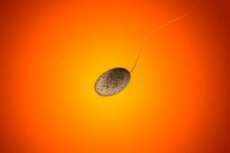Coronavirus impairs male sperm quality
Last reviewed: 07.06.2024

All iLive content is medically reviewed or fact checked to ensure as much factual accuracy as possible.
We have strict sourcing guidelines and only link to reputable media sites, academic research institutions and, whenever possible, medically peer reviewed studies. Note that the numbers in parentheses ([1], [2], etc.) are clickable links to these studies.
If you feel that any of our content is inaccurate, out-of-date, or otherwise questionable, please select it and press Ctrl + Enter.

For three months after undergoing COVID-19, men experience a decrease in sperm concentration and impaired sperm motility. The scientists stated this in a report presented at the 39th annual congress of the European Society of Human Reproduction and Embryology.
Previously, similar scientific work based on the analysis and identification of features and characteristics of sperm after infection with coronavirus. Specialists assumed that the deterioration of sperm quality is transient, and male fertility should recover as new sex cells are produced. But it turns out it's not that simple. A group of Spanish researchers led by Dr. Nuñez-Calonge found that even three months after COVID-19 disease, there can be a disappointing picture in terms of sperm concentration and activity.
Specialists noted that individual male patients who visited reproductive centers in Spain had significantly worse sperm quality after being affected by coronavirus infection. This also applied to those men who had a relatively easy course of the disease.
It is known that it takes about 78 days to renew the composition of sperm. The researchers evaluated the quality of the material 100 days after the patients had recovered.
Forty-five male patients from six Spanish Reproductive Medicine Centers were examined during the entire period of the experiment. All participants were diagnosed with a mild course of COVID-19. semen analysis was performed before coronavirus infection, then after infection and recovery. The mean age category of the participants was 31 years.
Specialists subjected all taken biomaterial to careful analysis for 100 days after recovery. As a result, clear and unfavorable differences in semen quality were found before and after SARS-CoV-2 lesion. For example, the total number of ejaculate after the disease decreased by 20%, the concentration index decreased by more than 26%, the number of spermatozoa decreased by more than 37%, the total motility slowed down by 9%, and the number of viable male germ cells decreased by 5%. As can be seen, sperm concentration and total sperm count suffered the most. Moreover, in every second man examined, the total number of spermatozoa fell by 57%, compared to the indicators before the disease. Three months after the disease, the situation with the quality of ejaculate, unfortunately, did not show significant improvement.
At present, scientists cannot answer the question of how much time is needed for sperm quality to recover. The possibility that even a mild course of coronavirus infection can irreversibly impair male fertility cannot be ruled out.
Details of the study can be found on the pages of the European Society of Human Reproduction and Embryologytitle="ESHRE">.
